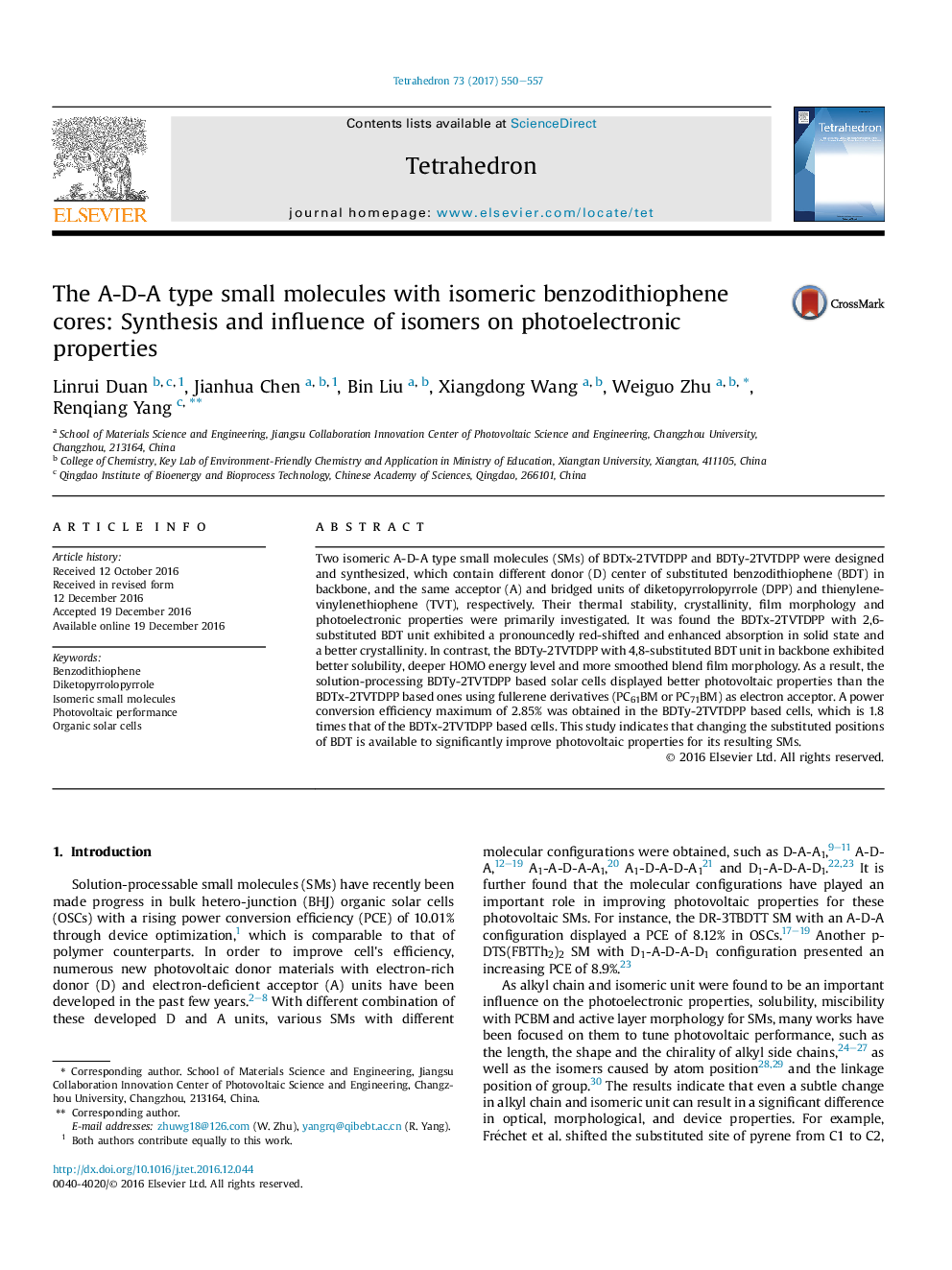| کد مقاله | کد نشریه | سال انتشار | مقاله انگلیسی | نسخه تمام متن |
|---|---|---|---|---|
| 5213048 | 1383143 | 2017 | 8 صفحه PDF | دانلود رایگان |

- The A-D-A type small molecules (SMs) with isomeric benzodithiophene (BDT) cores were synthesized.
- The influence of isomeric BDT core on photo-electronic properties of its SMs was investigated.
- The SM with a 4,8-BDT core exhibited better photovoltaic properties than the SM with a 2,6-BDT core.
Two isomeric A-D-A type small molecules (SMs) of BDTx-2TVTDPP and BDTy-2TVTDPP were designed and synthesized, which contain different donor (D) center of substituted benzodithiophene (BDT) in backbone, and the same acceptor (A) and bridged units of diketopyrrolopyrrole (DPP) and thienylenevinylenethiophene (TVT), respectively. Their thermal stability, crystallinity, film morphology and photoelectronic properties were primarily investigated. It was found the BDTx-2TVTDPP with 2,6-substituted BDT unit exhibited a pronouncedly red-shifted and enhanced absorption in solid state and a better crystallinity. In contrast, the BDTy-2TVTDPP with 4,8-substituted BDT unit in backbone exhibited better solubility, deeper HOMO energy level and more smoothed blend film morphology. As a result, the solution-processing BDTy-2TVTDPP based solar cells displayed better photovoltaic properties than the BDTx-2TVTDPP based ones using fullerene derivatives (PC61BM or PC71BM) as electron acceptor. A power conversion efficiency maximum of 2.85% was obtained in the BDTy-2TVTDPP based cells, which is 1.8 times that of the BDTx-2TVTDPP based cells. This study indicates that changing the substituted positions of BDT is available to significantly improve photovoltaic properties for its resulting SMs.
Two A-D-A type small molecules with isomeric benzodithiophene (BDT) cores, BDTx- 2TVTDPP and BDTy-2TVTDPP, were designed and synthesized. The BDTy-2TVT- DPP with a 4,8-BDT core exhibited better photovoltaic properties than the BDTx-2TVT- DPP with a 2,6-BDT core in their BHJ organic solar cells. A power conversion efficiency maximum of 2.85% was obtained in the BDTy-2TVTDPP based cells, which is 1.8 times that of the BDTx-2TVTDPP based cells.178
Journal: Tetrahedron - Volume 73, Issue 5, 2 February 2017, Pages 550-557